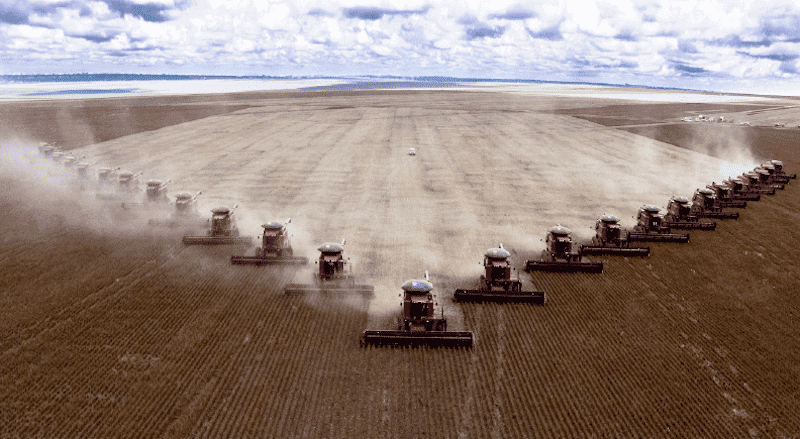Food Planet: Only So Much Land and Water
Our planet, often referred to as the blue marble, is the only known body in the universe capable of sustaining life. It's a paradise of biodiversity and resources. But this paradise, our food planet, is under immense strain due to our activities. Here, we dive into some stark realities of how we are using — and losing — the land and water that sustain us.
We Lose an Acre of Farm Land Every 20 Minutes Due to Climate Change
The impact of climate change on agriculture is profound. As temperatures rise, extreme weather events become more frequent, and sea levels inch higher, we're losing precious farmland. Every 20 minutes, an acre of fertile land succumbs to desertification, urban sprawl, or degradation. This loss is not just about land; it's the diminishment of our capability to grow food for the 8 billion people that live on our planet.
70 Percent of the Water on Earth Is Used to Grow Food, and Agriculture Wastes Half of It
Water is the lifeblood of agriculture, yet our current practices are far from efficient. Astonishingly, 70% of Earth's water goes into agriculture, but outdated irrigation methods, poor infrastructure, and unoptimized water management lead to nearly half of that water being wasted. This waste exacerbates water scarcity, affecting communities and ecosystems that depend on this vital resource.
More Than Half of the Food Grown on Earth Is Genetically Modified and Will Not Produce Seed
Genetic modification has revolutionized agriculture, providing resistance to pests, diseases, and harsh environmental conditions. However, the dependence on genetically modified organisms (GMOs) comes at a cost — many of these modified crops are designed not to produce seeds, forcing farmers into a cycle of purchasing new seeds each season. This dependency raises concerns about biodiversity, the sovereignty of local farmers and the loss of the planet to propagate plants in the aftermath of a global disaster.
The Use of Pesticides and Herbicides Has Killed a Third of the Insects on Earth
In our battle against crop pests and weeds, we've turned to chemical warfare — pesticides and herbicides. While effective in increasing crop yields, they come with a significant downside. A third of the insect population, crucial pollinators, and part of the foundational food web, has been wiped out. This loss signals a breakdown in the ecological balance, threatening crop pollination and the myriad ecosystem services insects provide.
Of All the Freshwater on Earth, only 20 Percent Is Fit to Drink
Freshwater — esential for human survival — is astonishingly scarce. While about 2.5% of the world's water is freshwater, only 20% of that is fit for consumption. Pollution from industrial activities, agricultural runoff, and improper waste management contaminates our rivers, lakes, and aquifers. Ensuring access to clean drinking water has become one of the greatest challenges of our time.
We Lose a Ton of Topsoil Every Minute of Every Day to Mechanized Agriculture
The backbone of agriculture, topsoil, is being eroded at an alarming rate due to mechanized farming practices. These methods, while efficient, often disregard the health of the soil. As a result, we're losing topsoil — rich with nutrients and microorganisms essential for plant growth — faster than it can naturally regenerate. This loss not only reduces agricultural productivity but also contributes to the release of stored carbon, feeding into the vicious cycle of climate change.
Our food planet is in a delicate balance, and our current practices are tilting it towards an unsustainable future. It's imperative that we shift towards more sustainable agricultural practices, improve water management, protect our biodiversity, and preserve our topsoil. The choices we make today will determine the health of our planet and the security of our food for generations to come. The time to act is now, as every minute counts in the race to save our Food Planet.



.png)
.png)
.png)

.png)